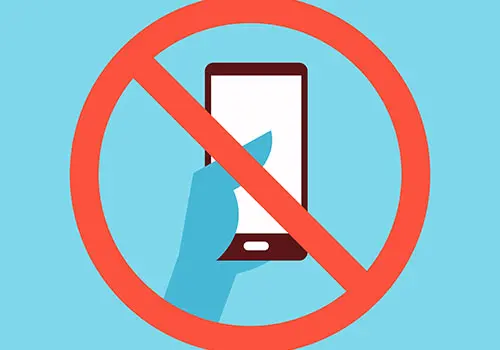Florida bans under-14s from social media by 2025. The next step

Gov. Ron DeSantis signed HB 3 on Monday, making it illegal for anybody under the age of 14 to establish a social media account in the state of Florida as of the next year.
A law that was introduced in the Florida legislative session of 2024 that would have prohibited juveniles under 16 from using social media was earlier vetoed by DeSantis, but not because he disagreed with the concept. He voiced fears that the legislation wouldn’t withstand a legal challenge and felt that parents should have more influence, according to a recent article by C.A Bridges of Daily Commercial
The governor said, “Parents need to have a role in this,” after the Senate approved the law in February. “I believe that parents are worried about what happens on social media and that they believe it to be a problem. However, I also believe that it’s more complicated for those in high school.”
After the governor vetoed the first bill (CS/HB 3) and asked for changes, Senate President Kathleen Passidomo, R-Naples, revived a previous, similar bill (CS/HB 3) and modified it into what House Speaker Paul Renner, R-Palm Coast, called a “product of compromise” and “even better.” Despite this, the House passed HB 1 hours later. Renner was previously adamantly opposed to parental exceptions, viewing the prohibition of youngsters using social media as a primary objective.
What is the purpose of Florida’s HB 3 social media law?
Internet Protections for Minors, or HB 3, would:
1. Prohibit any child under the age of 14 from opening an account on any social media platform.
2. Require parents’ consent before minors 14 or 15 years old can open an account.
3. Require social media platforms to delete accounts held by minors 14 or 15 years old without the consent of parents or guardians, with a 90-day appeal period.
4. Make social networking sites employ outside age verification techniques for newly created accounts.
5. Permit youngsters under 14 or their legal guardian to request the termination of their account, and we’ll take care of it in 10 business days.
6. The measure also prohibits the storage of personal data used for age verification and permits legal action against social media companies that disobey the law, with fines reaching $50,000 for each infraction.
The bill also mandates age verification for websites that contain “materials harmful to minors,” such as sexual content that is visible in Florida, in order to restrict access by people younger than eighteen (18).
Will Facebook? X be impacted by the social media bill in Florida? Instagram? TikTok?
Excellent query. During the bill’s deliberations, the lawmakers declined to name specific sites.
Almost all websites and services on the internet need users to register for an account, and the majority of them feature social components. The legislation states that any online forum where any of the following occurs will be considered a social media platform:
Users have the ability to post content and observe other users’ content and activities.
An average of two hours or more is spent on the site by 10% or more of the daily active users who are under the age of sixteen.
The site employs algorithms to evaluate user data and user information and choose what users will view.
Any one of the subsequent “addictive features” is applied:
Scrolling endlessly (material that loads continuously without requiring you to navigate to a new page or refresh it)
Push alerts or notifications on particular user-related actions or occasions
analytics showing user likes, shares, and reposts
A video that plays without the need for user interaction
Streaming live
Facebook, Instagram, TikTok, X (previously Twitter), and any of the recently developed Twitter substitutes, such Bluesky and Mastodon, appear to fall within that criteria.
For the purposes of the bill, websites that are only used for direct message or email between sender and receiver are not regarded as social media.
I’m not yet sixteen. Will social media erase my account?
The social media platform must cancel your account and remove all of your personal data if they have any cause to think you are under 14 years old. You can contest it for ninety days.
If you are 14 or 15, your account will be closed without permission from your parent or guardian; you will have further 90 days to contest the closure.
As on the findings of the 2023 U.S. Surgeon General’s Advisory on Social Media and kids Mental Health, approximately 95% of kids between the ages of 13 and 17 use social media, with over 33% indicating that they use it “almost constantly.”
What sanctions apply to social media platforms that violate Florida’s social media law?
Websites that break the legislation “knowingly or recklessly” risk civil penalties of up to $50,000 for each infraction, in addition to legal fees and other court expenses. Repeat offenders may be subject to punitive damages.
Websites that refuse to delete accounts upon request from a kid, parent, or guardian risk fines of up to $10,000 in addition to legal fees and other associated costs.
In addition to legal fees and court costs, adult websites that fail to employ an age verification technique may face fines of up to $50,000 per infraction. The age verification service may also be penalized up to $50,000 for each legal infraction if it breaks the law on its own.
An adult website may be held accountable to a minor for up to $10,000 in addition to legal fees and court expenses if it fails to keep the kid off the site.
Will accounts for newborns or minors managed by parents or guardians be impacted by the Florida social media bill?
It’s unclear how the new regulation will impact parent-run websites.
What distinguishes Florida’s HB 1 and HB 3 social media bills from one another?
DeSantis vetoed HB 1, which forbade anyone under the age of sixteen from having a social media account. A comprehensive list of all the different kinds of websites that would be unaffected was also supplied. It became operative on July 1, 2024.
With permission from a parent or legal guardian, HB 3 streamlines the process and permits accounts for children between the ages of 14 and 15. It would be operative the next year.
The new bill also provides much more information about the use of subpoenas in noncompliance investigations, the locations where subpoenas may be issued, the penalties the state will impose on individuals or groups who refuse to comply with subpoenas, and the maximum amount of money that can be charged for noncompliance (which is $5,000 per week plus legal fees and costs).
Will there be a legal challenge to Florida’s social media law?
Very likely.
While some states, including California, Utah, Ohio, and Arkansas, have tried to restrict children’ access to social media, almost all of these efforts have been halted or postponed because of lawsuits contesting their constitutionality and First Amendment violations.
When would Florida’s social media law take effect if it were passed and signed?
The social media bill would go into effect on January 1, 2025, if it passes into law.
This article originally appeared on Daily Commercial
